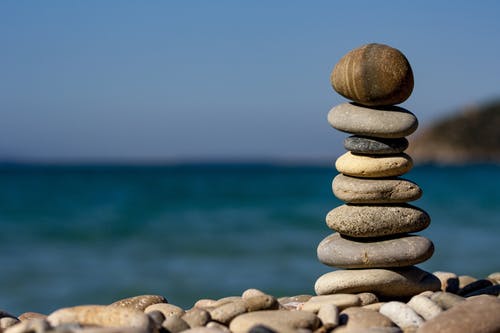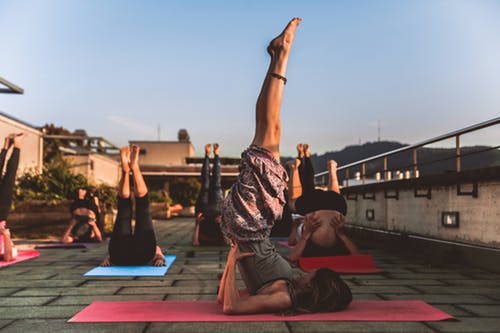by: Bipin Baloni
We are living in a world that is dominated by certain values – work hard, don’t waste time, always do your best, never give up, keep doing and never stop. Well, all these are much appreciated, but when we follow these ethics day after day, there comes a point when we feel it’s going overboard. Suddenly, there is a feeling of lack of enthusiasm, tiredness and the longing to leave everything and go for a long break. And what caused these feelings?
Stress, tension, pressure, etc. that were accumulating over the days while we kept working hard without paying heed to our bodily senses. Stress is an inevitable part of our lives but not all stress is bad.
Hard to believe??? Here is the proof. Famous Canadian endocrinologist, Dr. Selye who spent near about 30 years studying stress, proved that stress to a certain extent is good for us. In fact, it can stimulate the brain functions in a much better way; it can reduce chances of breast cancer, keep us fit and also lower the chances of Alzheimer’s disease.

However the problem occurs when it becomes chronic and starts affecting us in a negative way. With the advancement of modern science and technology, scientists and doctors are coming up with newer and better ways to cope with stress and that’s good, no doubt.
However nothing can beat the age-old practices prescribed by Ayurveda which follows a natural way of dealing with the problem.
In the following paragraphs let’s learn about 8 natural tips suggested by Ayurveda to effectively deal with the issue of stress.
Relax, Take it Easy
First and foremost, slow down. In this fast-paced world, there is always too much to do and too much to take care of. Indeed, no doubt about that, but it is important to take it easy and slow down. Seems impossible at first however with daily practice it can definitely be achieved.
It is crucial to make this a habit and never let go off it. For those who are wondering how to start? Take part in self-care. Enjoy the company of yourself and spend some time away from the hassles of daily life. Reflect on the feelings, senses and juts think of the present without any worries about the future or the past.
Adopt a Healthy Routine
Adopting a daily routine with a sense of regularity is the key to a healthy and stress free life. It is important to tune our bodies with the natural rhythms – waking up at dawn, having supper in the evening and going to bed early. Over the passage of time we get used to the routine and the
rejuvenation process begins.
Ayurveda suggests a daily routine which includes – waking up early in the morning (preferably before six o’clock), clearing the bowels, nostrils and tongue, indulging in Abhyanga (self massage with oil), practicing asanas, taking a bath and eating a nutritious breakfast (consisting of freshfruits). Lunch should ideally be taken at noon and should be wholesome in nature. Evening meal should be finished as early as possible (preferably by 8 p.m.) and going to bed by ten o’clock.
Practice Asanas
Where there is Ayurveda, there is yoga. The ancient science is an integral part of Ayurveda and blesses one with a healthy body and a clear state of mind. Practicing yoga asanas on a daily basis can have profound effects on the practitioner. Apart from the bodily benefits, yoga relieves stress,
sharpens concentration and keeps the mind calm.
Practicing poses like Sarvangasana, Simhasana, Savasana, etc. increases the flow of oxygen in the body and eliminates stress and anxiety.
Do Meditate
Meditation can be of various types – sitting is absolute stillness for hours, walking meditation, mindful meditation and more. But the benefits remain the same – increased sense of self- awareness, increased focus and mental clarity, reduced stress, emotional intelligence, etc. For those
who are thinking of taking the very first steps in the direction, mindful meditation happens to be the best choice.

By focusing on a specific thing, place, voice or anything, the brain starts to relax and the stress fades away. And the good thing is that, it can be practiced anytime and anywhere.
Change the Diet
No matter whether a person is affected by stress or not, it is important to have a well-balanced, nutritious and natural diet. This is an important part of the teaching curriculum for Ayurveda courses in India where one is taught about the importance of maintaining a naturally healthy diet.
To keep stress to the minimum and not let it aggravate, it is necessary for a person to avoid refined sugars, caffeine and junk foods.
Fresh, wholesome and unprocessed foods are best for a healthy body and mind. Equally important is to keep a track on the amount of minerals, vitamins, amino acids, essential fatty acid and enzymes consumed on a daily basis.
Drink Herbal Teas
Ayurveda and herbs go hand in hand. Herbs like Basil, Tulsi, Chamomile, Cardamom, etc. have long been a part of Ayurveda owing to the myriad of benefit they offer. Herbal teas made from these herbs tend to have a soothing effect on the mind. It helps the body to relax and brings back the lost vigor to the mind making it refreshed once more.
Take Warm Baths
Isn’t the feeling of settling into a tub of warm water on a chilly day reinvigorating and revivifying? Sure, it is but there more to it than you expected. Taking a warm diminishes feelings of pessimism, stress and depression. Ayurveda recommends adding some baking soda and ginger juice to the arm water since it helps in elevating mood and stimulates blood circulation in the body.
Spend Some Time in Nature
Nature is a natural healer. The smell, sound and sights in nature create a calming effect that helps to let go off negativity, stress, etc. Therefore, it is always recommended to spend at least half an hour of the day, alone in nature and just immerse in the environment. All the better if it possible to spend some time in meditation amidst nature that can create a sense of well-being and positivity.
Author bio: Bipin Baloni is a passionate Yogi ,Yoga teacher and a traveler in India. He provides Ayurvedic Treatment In Kerala.Bipin Baloni conducts Yoga Teacher Training in Rishikesh. He loves writing and reading books related to yoga ,health, nature and the Himalayas.
* sponsored post *** subscribe ***











More Stories
Yoga Routines For You…
Ashtanga Yoga: Everything You Need To Know
4 Key Benefits of Doing Aqua Yoga